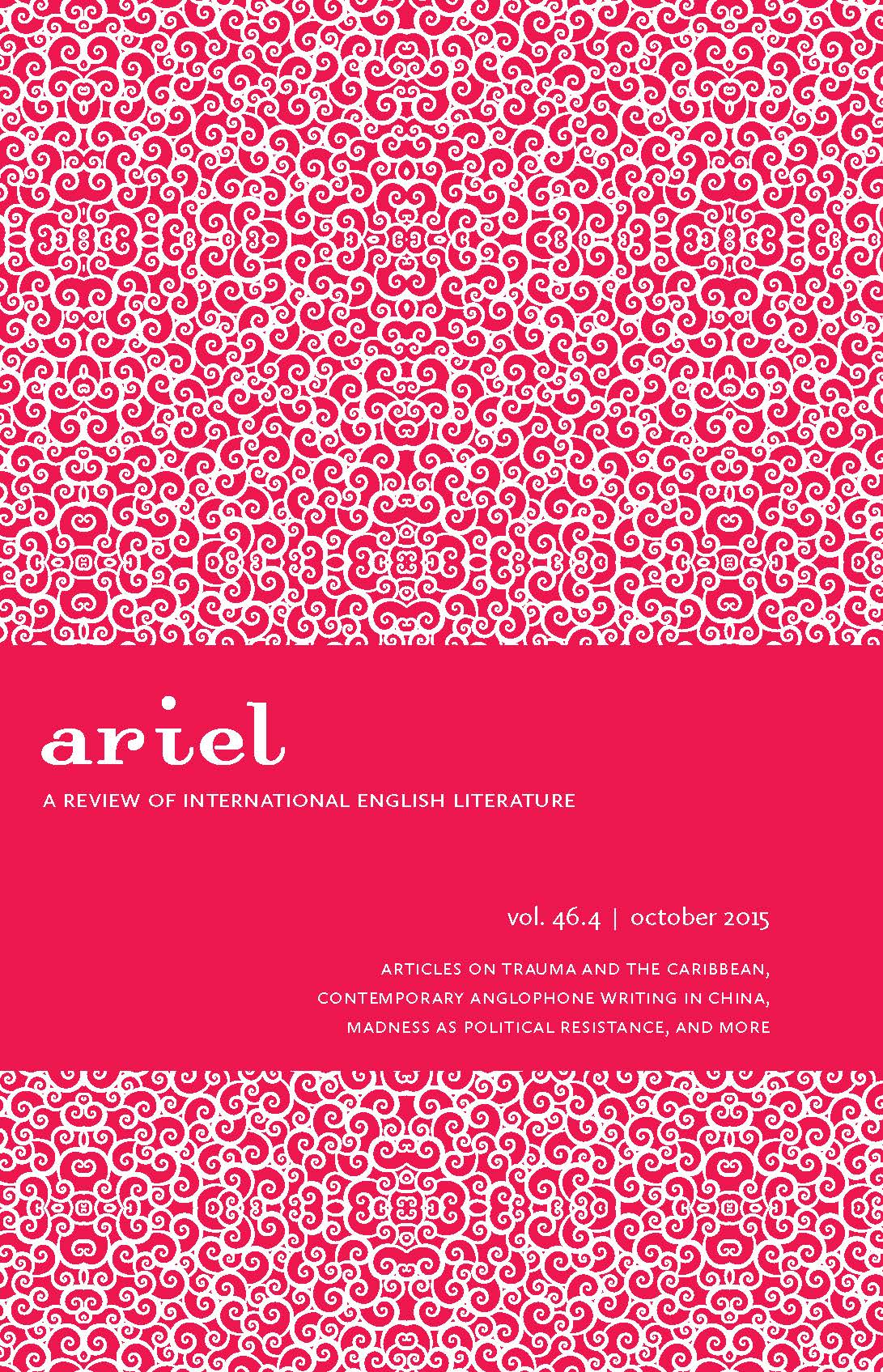Fixity amid Flux: Aesthetics and Environmentalism in Amitav Ghosh's The Hungry Tide
Keywords:
Rural, Neoliberalism, Dispossession, Environmentalism, Network Narrative, FixityAbstract
This paper explores the formal means by which Amitav Ghosh's The Hungry Tide--a 2004 novel set in the Sundarbans islands-- articulates an environmental politics that reconciles social justice and ecological concerns. The novel's internal contradictions come to the surface in its treatment of the South Asian fisherman, Fokir, as an idealized peasant whose fixity is in marked contrast with the fluid subjectivities of the metropolitan characters. I argue that Fokir's idealization is a problematic way by which the novel mourns the loss of peasant culture in the context of neoliberalism's destruction of rural ecologies.Downloads
Additional Files
Published
2015-12-03
Issue
Section
Articles


